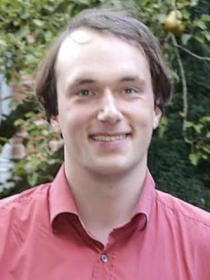dr. A.W. (Ayhan) Aksu

Literary Heterogeneity, Religious Diversity, and Individual Scribes in the Dead Sea Scrolls Collections
The discovery of the Dead Sea Scrolls —ancient Jewish manuscripts from the third century BCE to the first century CE from the Judaean Desert—has fundamentally changed our knowledge of Jewish and Christian origins. The scrolls are our nearest evidence for the scribal culture that produced the Hebrew Bible (Old Testament) and offer a fascinating insight into the religious dynamics of early Judaism during a period of confrontation and globalisation. Among the Dead Sea Scrolls we do find the oldest manuscripts of the Hebrew Bible, rule texts of a previously unknown community, literary compositions in several languages, and many hitherto unknown ancient Jewish manuscripts.
However, the entire collection of manuscripts, in all its diversity, remains difficult to characterise and continues to raise questions. To what degree does the literary heterogeneity observed within the Dead Sea Scrolls offer an insight into the development of Jewish thought? How did Jewish scribes engage with their texts on an individual level? Does the collection offer an entry into the scholarly community that produced the manuscripts?
This project intends to set the study of literary heterogeneity, religious diversity and textual communities in the Dead Sea Scrolls on a new footing. In close cooperation with the ERC Project “The Hands that Wrote the Bible: Digital Palaeography and Scribal Culture of the Dead Sea Scrolls,” this PhD aims to reassess literary developments in light of new palaeographic dating. A combined literary and palaeographic analysis will lead to individual scribal profiles that will be correlated to scholarly models of the presumed textual community behind the collections.
